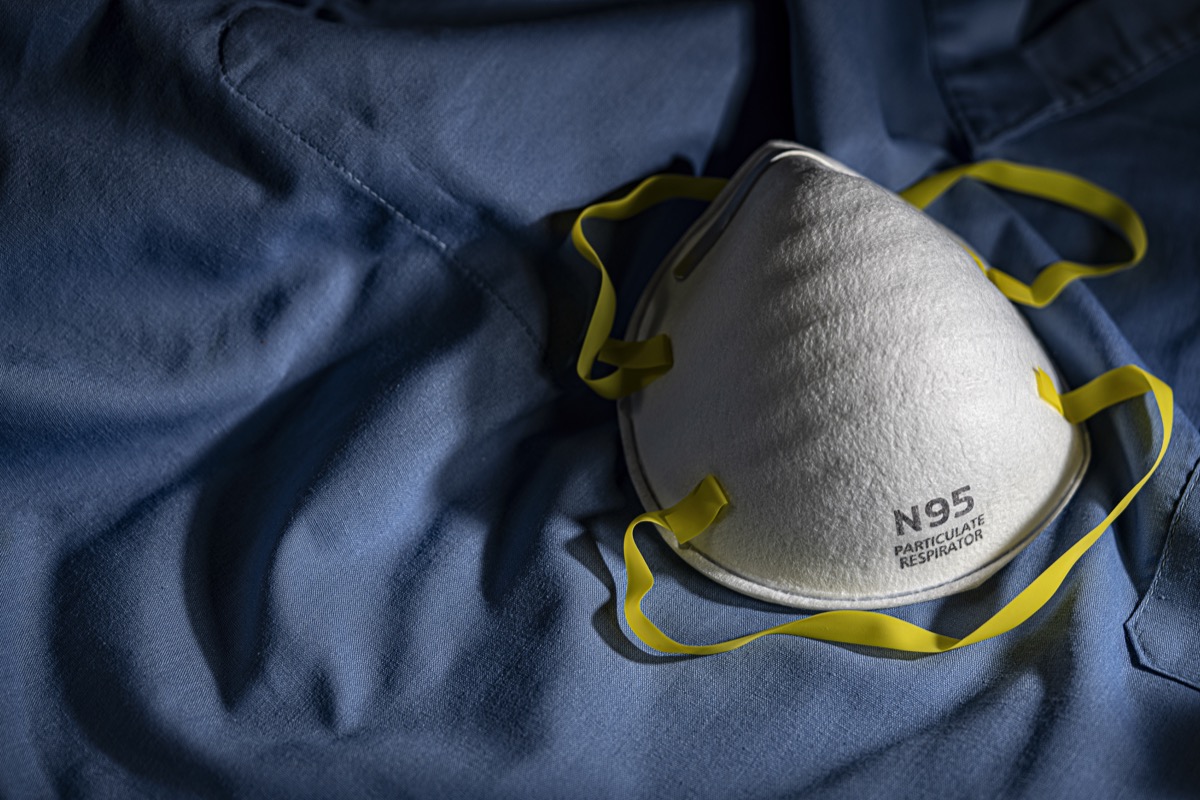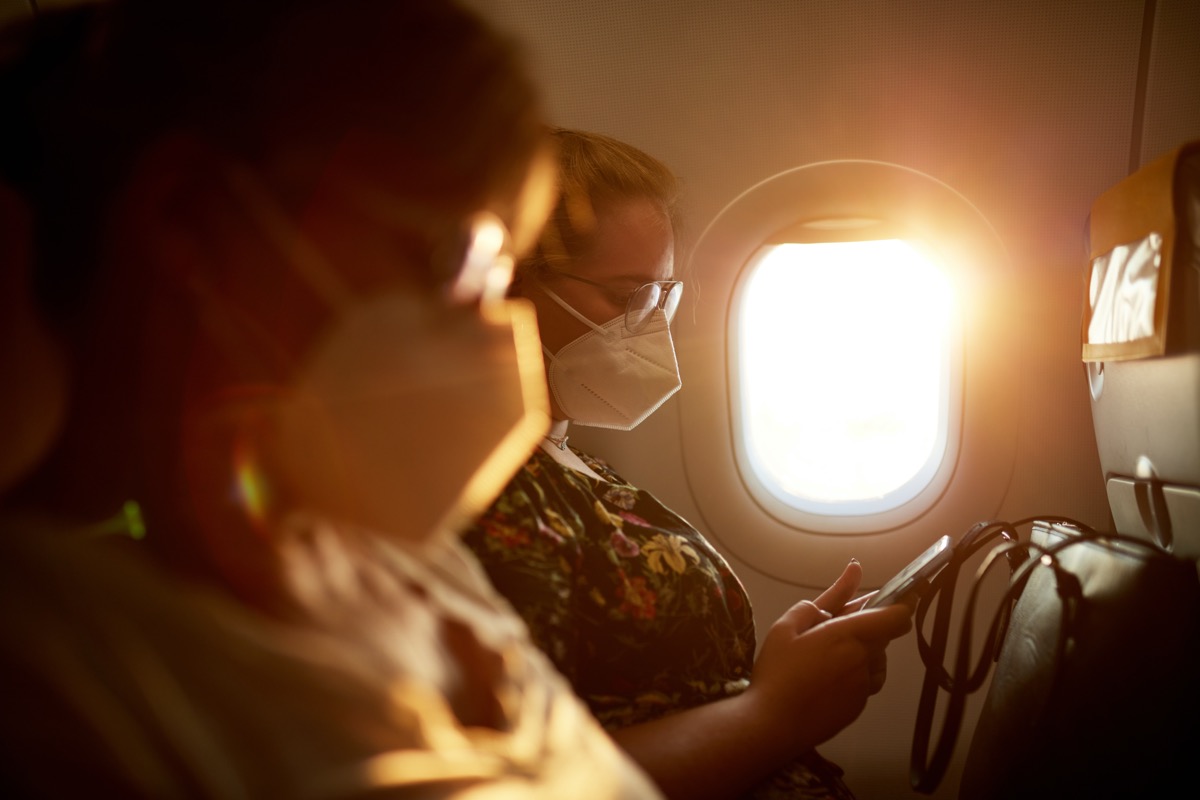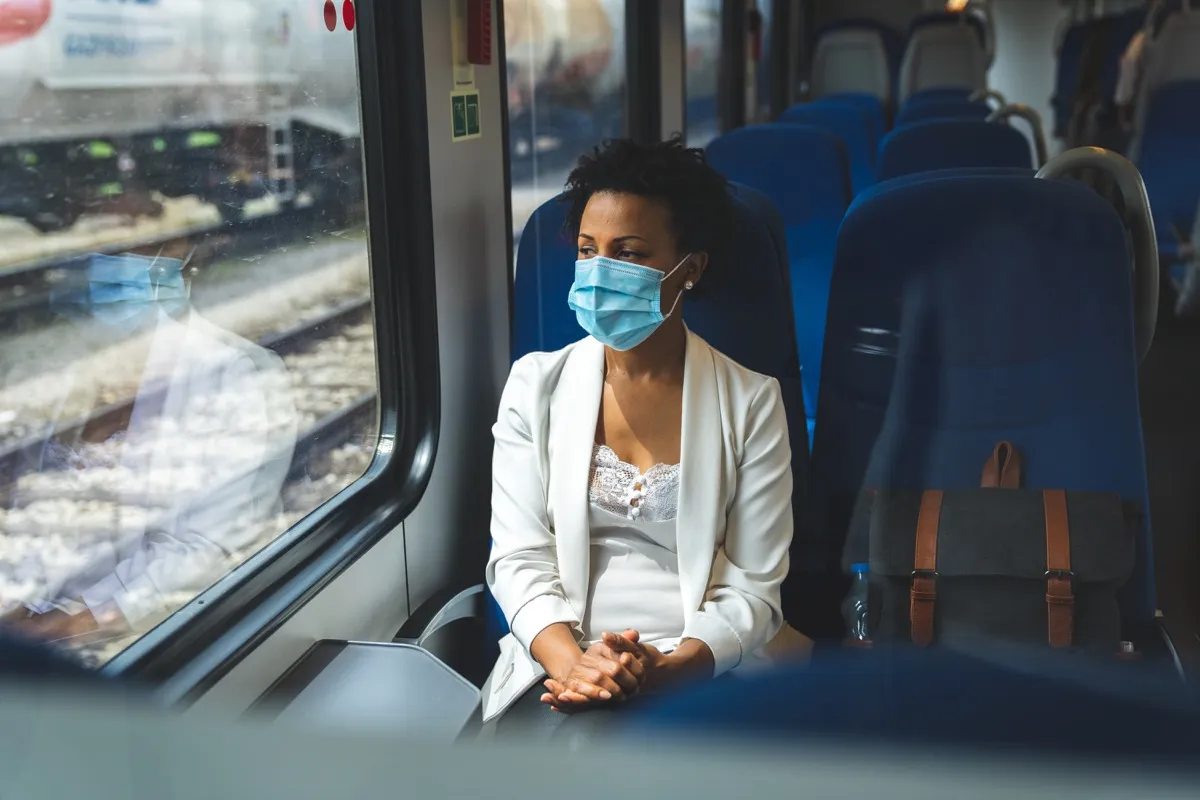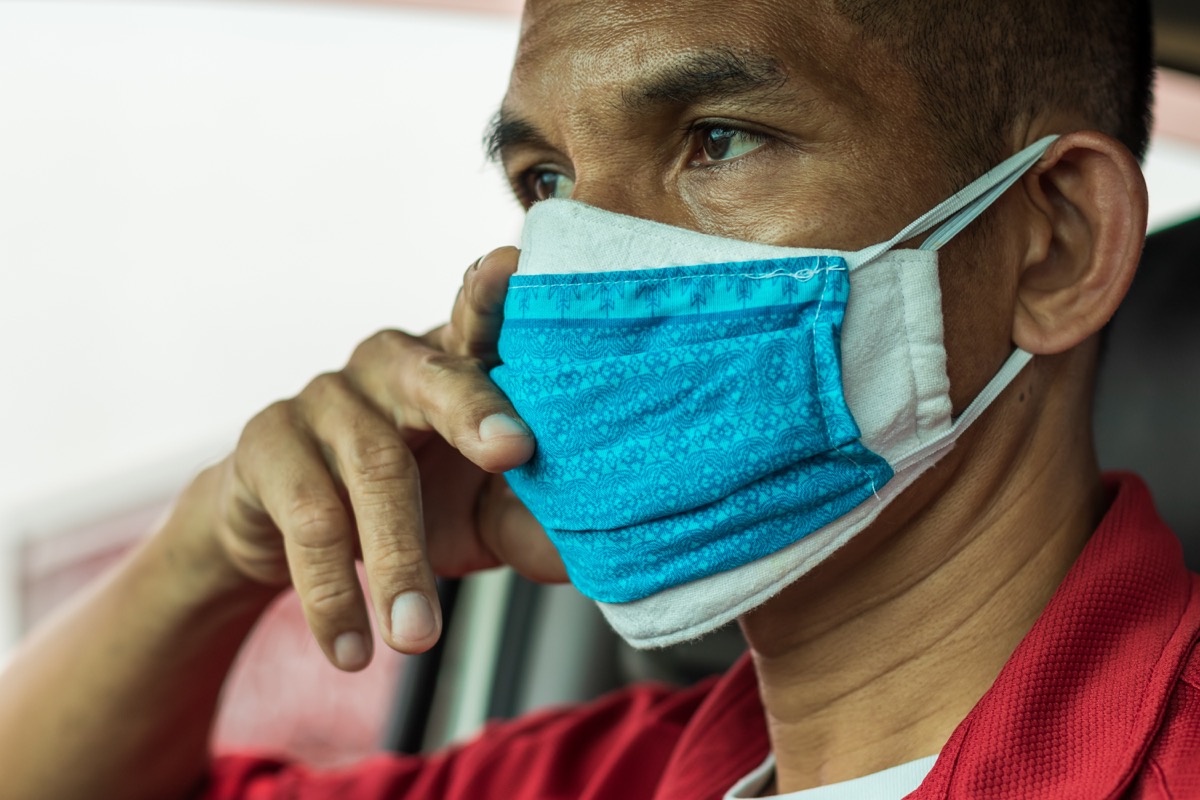“As we progress in this pandemic, we are coming to the realization that no, not all masks are the same,” Martin Cohen, MD, assistant chair and teaching professor in the University of Washington’s Department of Environmental & Occupational Health Sciences, told the New York Post. Read on to find out which masks experts recommend you have in your arsenal, and for more coronavirus news, You’re More Likely to Get COVID From Someone Doing This Than From Coughing. The N95 was in high demand at the onset of the pandemic, but back then experts urged the general public to leave them to healthcare workers. Now, almost a year into the pandemic, there are enough to go around. Rajesh Mohan, MD, a cardiologist and author of COVIDslayers: How We Can Win! and What Really Went Wrong? told the Post that the N95 remains the “gold standard” of masks. A Sept. 2020 study out of Duke University published in Science Advances studied 14 masks and found that the N95 was the most effective at filtering droplets. However, these masks can still be hard to get your hands on, so don’t fret if you can’t find one. “N95s are hard to get. I don’t think people should think that’s what they need,” Ashish Jha, MD, dean of the Brown University School of Public Health, told The Baltimore Sun. “Certainly, there are a lot of masks out in the marketplace that are pretty good.” And for more up-to-date information, sign up for our daily newsletter. A mechanical engineer and expert in the science of aerosols, Aaron Collins, has been reviewing mask efficacy on YouTube. To closely study each mask, he uses an aerosol generator to pump particles of salt and water. Then a condensation particle counter counts the number of particles in the air versus how many are in the mask. Collins determines the efficacy of the mask by comparing the number of particles inside the mask to those outside the mask. Based on his findings, the N95 is the best option “because it seals to the face,” but Collins acknowledges how uncomfortable they are. He found that the KF94 mask ranges from 90 to 99 percent protection, which is still very high.ae0fcc31ae342fd3a1346ebb1f342fcb Jha advocates using the KF94 mask as an alternative to the N95 for the everyday person not working in the medical field. According to the Baltimore Sun, the KF94 resembles the N95, but it goes around your ears rather than your head, which means it won’t hold tightly to your face in the same way. These masks are also much easier to find online. And for masks you need to avoid, If You Have This Mask, Get a New One Now, Experts Say. The classic, often blue, surgical mask is a more comfortable, yet still highly effective option. If you leave your house, you’re bound to see someone sporting this mask. The Duke study found that it was the second most effective mask they examined. Mohan told the Post that surgical masks are “the next best thing” to the N95, and that “if people wore them, there would be about 70 percent decrease in infection.” After France’s Health Minister Olivier Veran asked people to steer clear of fabric masks because they “do not necessarily offer all the necessary guarantees,” he advocated for surgical masks in their place. “All masks which have a filtering power greater than 90 percent are valid—that includes almost all surgical masks for the general public,” Veran told France Inter radio on Jan. 19. And for more masks to steer clear of, The CDC Warns Against Using These 6 Face Masks. The Centers for Disease Control and Prevention (CDC) has warned against wearing masks with just one layer, so if you find yourself with a flimsy mask, consider stacking it with another for added protection. “Obviously, the more layers you have of fibers between one person’s mouth and the other’s, there is less risk of spreading infection,” Mohan told the Post. Linsey Marr, PhD, an expert in virus transmission at Virginia Tech, told The New York Times that “if you combine multiple layers, you start achieving pretty high efficiencies” of blocking the coronavirus from reaching you. And for more on maximizing your protection, Doing This to Your Mask Could Keep You Even Safer From COVID, Experts Say.



